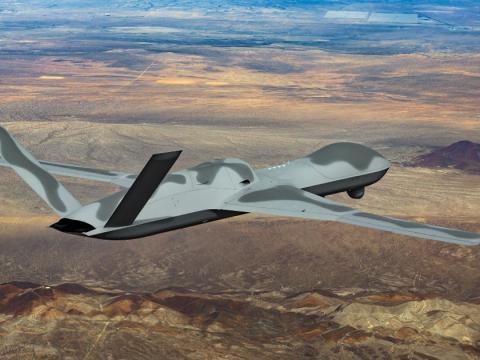Defense and Intelligence Need a New Budgeting Process
The budget and acquisition process is poised to fail both the Defense Department and the intelligence community just as they face major geopolitical challenges. China’s push to world domination requires better and faster technologies to maintain U.S. force and intelligence superiority, but the current system is ill-structured to meet that challenge.
This was the focal point of the final panel on day three of the AFCEA Spring Intelligence Symposium, held virtually May 25-27. Four former government officials with experience in defense or intelligence acquisition delved into the flaws permeating the current system and looked at steps that might be taken to address the problem. While they agreed on the problem and the need for a solution, their opinions varied slightly as to potential solutions.
Industry should get ahead of the fourth industrial revolution, because it will play to our benefit and not give overseas workers the benefit.—Will Roper, former assistant secretary of the Air Force and Space Force for acquisition, technology & logistics #AFCEAIntel
— Bob Ackerman (@rkackerman) May 27, 2021
“If you want to do reform in acquisition, culture is the first thing you have to work on,” said Will Roper, former assistant secretary of the Air Force and Space Force for acquisition, technology and logistics. He continued that this has to begin with a culture change outside of acquisition. One suggestion he offered is a model by which Congress could appropriate money by need but then retain approval during the year of execution.
“Congress loves the system,” said Bill Greenwalt, visiting fellow, American Enterprise Institute. “The problem is, Congress doesn’t want to be blamed when we actually lose to China because of it.”
Congress loves the system…the problem is, Congress doesn’t want to be blamed when we actually lose to China because of it.—Bill Greenwalt, visiting fellow, American Enterprise Institute @AEI #AFCEAIntel
— Bob Ackerman (@rkackerman) May 27, 2021
And China’s drive for domination dominated the rationale behind the panelists’ call for changes. “With China, we’re competing against scale. The only way you defeat scale is by adaptability,” Roper pointed out. The other panelists agreed that defense and intelligence acquisition actually hinders the very activity that is necessary to counter Chinese advances. “The biggest challenge in the competition with China is the separation of the .com and the .gov markets,” Roper stated, adding that they must be brought together or the United States never will be able to tap the country’s great strength: innovation.
With China, we’re competing against scale. The only way you defeat scale is by adaptability.—Will Roper, former assistant secretary of the Air Force and Space Force for acquisition, technology & logistics #AFCEAIntel
— Bob Ackerman (@rkackerman) May 27, 2021
“Simply, we have the worst business plan for how to stay ahead,” he declared.
Simply, we have the worst business plan for how to stay ahead.—Will Roper, former assistant secretary of the Air Force and Space Force for acquisition, technology & logistics #AFCEAIntel
— Bob Ackerman (@rkackerman) May 27, 2021
Greenwalt decried the delays inherent in the acquisition process. “Time is not a driving factor in acquisition,” he pointed out. “The reason is, we are sitting around waiting for the budget authority and requirements for at least three years.” The process has institutionalized this timeframe, and it must be adjusted to enable defense and intelligence to benefit from innovation. This goes beyond simple rapid acquisition into more fundamental change.
“Time is money,” he added.
Time is not a driving factor in acquisition. The reason is, we are sitting around waiting for the budget authority and requirements for at least three years.—Bill Greenwalt, visiting fellow, American Enterprise Institute @AEI #AFCEAIntel
— Bob Ackerman (@rkackerman) May 27, 2021
Burdensome oversight is one culprit. Roper said it just waters down the purchasing power that every organization has. He called for “a little less box checking at the program level and more looking at the portfolio level.” Too much oversight takes away the flexibility to move money where the threat dictates that it’s needed the most, he charged.
“Government needs a process that would harness opportunity. Oversight must move at the speed of relevance,” he offered.
Government needs a process that would harness opportunity. Oversight must move at the speed of relevance.—Will Roper, former assistant secretary of the Air Force and Space Force for acquisition, technology & logistics #AFCEAIntel
— Bob Ackerman (@rkackerman) May 27, 2021




Comments